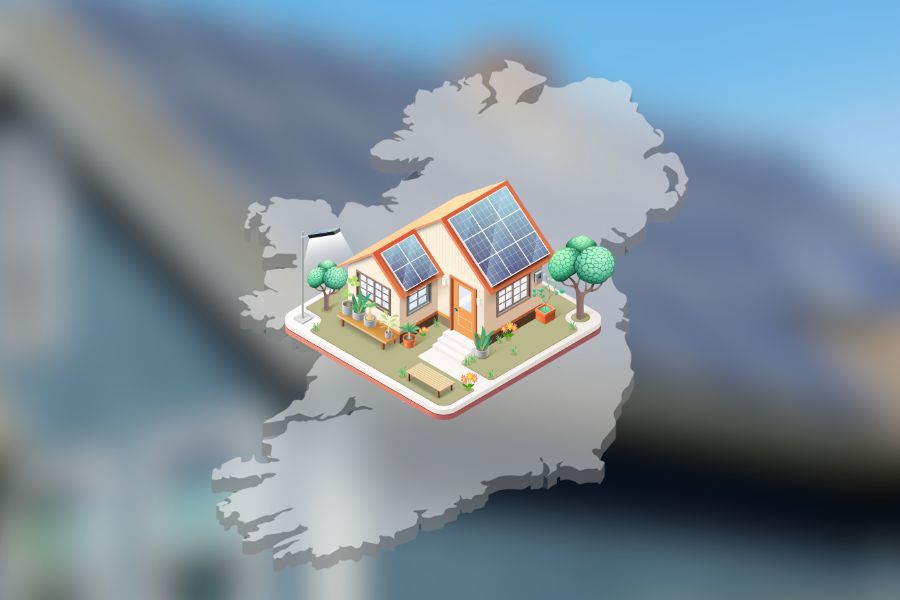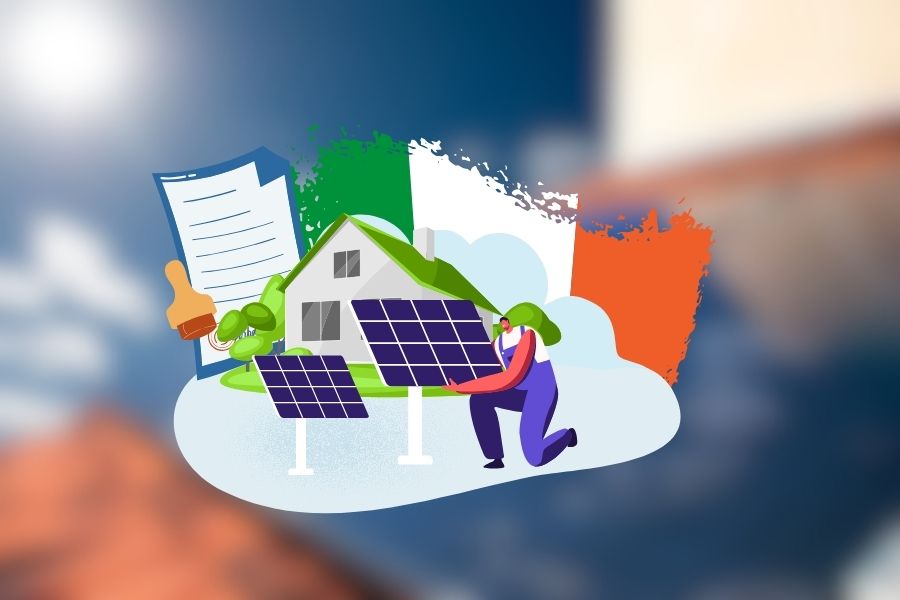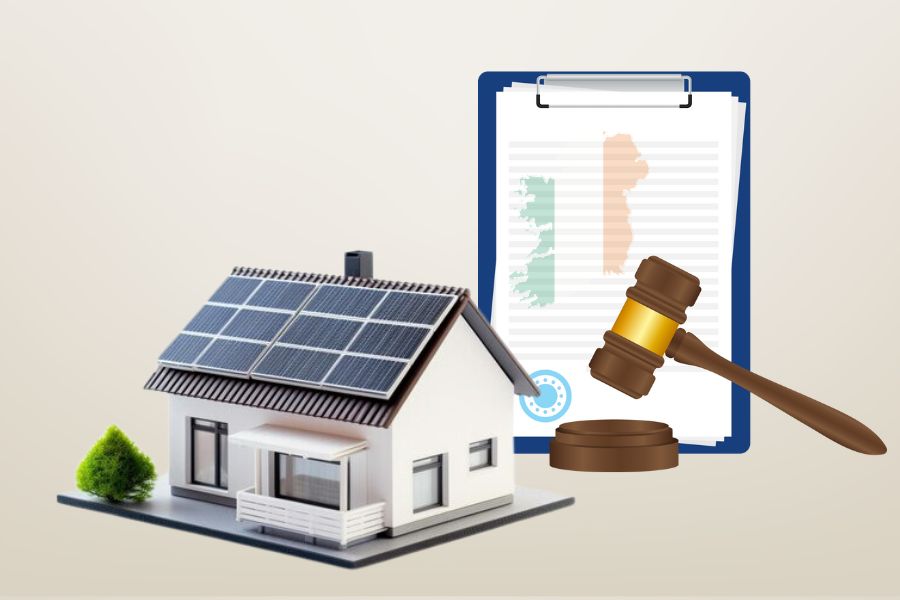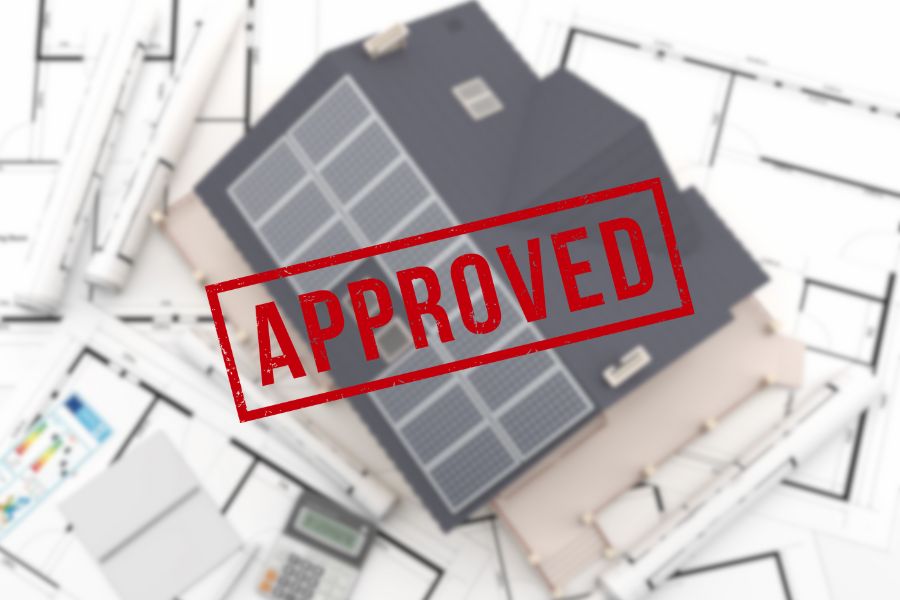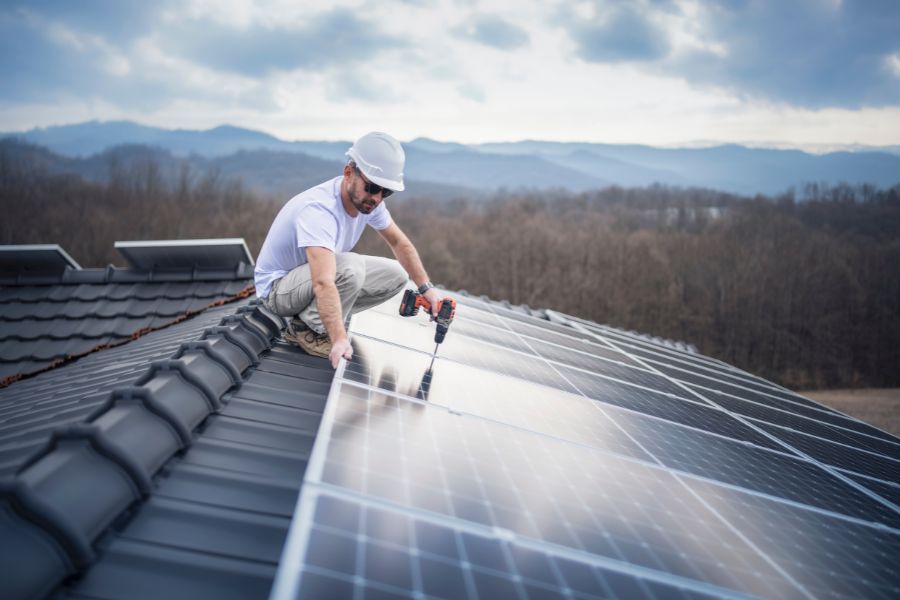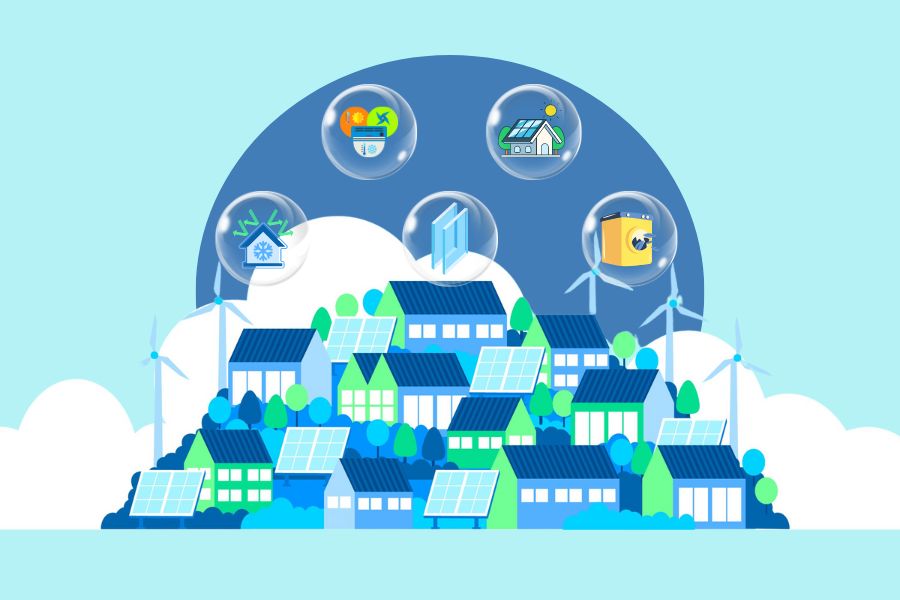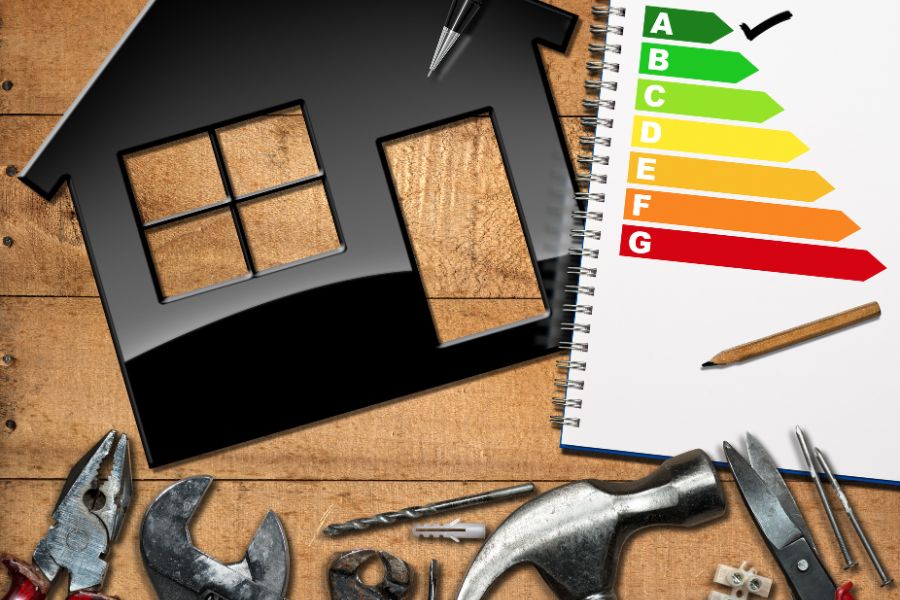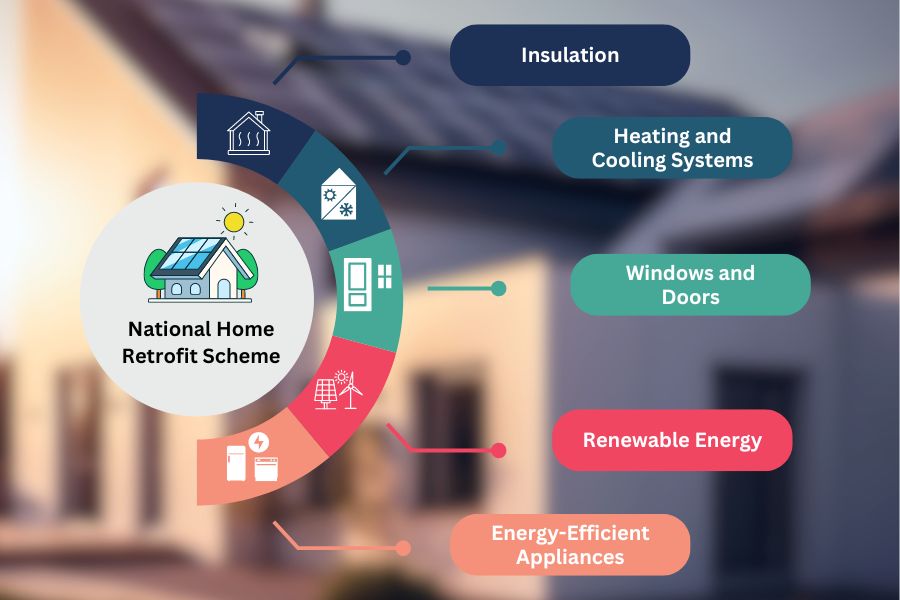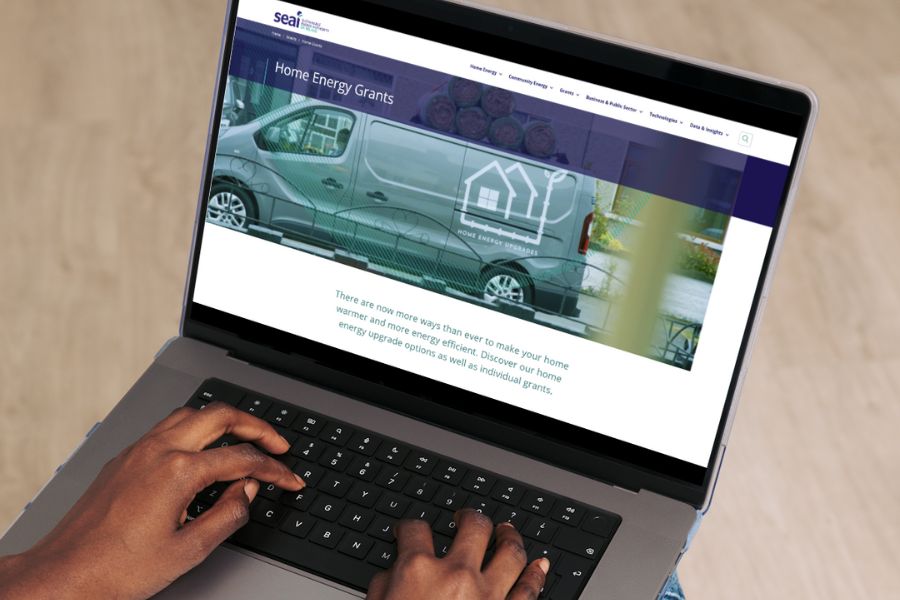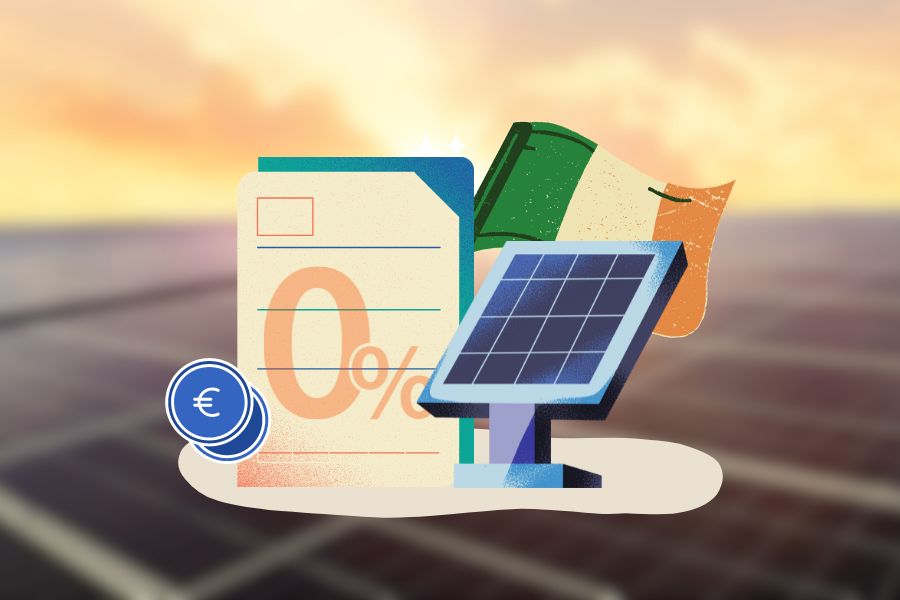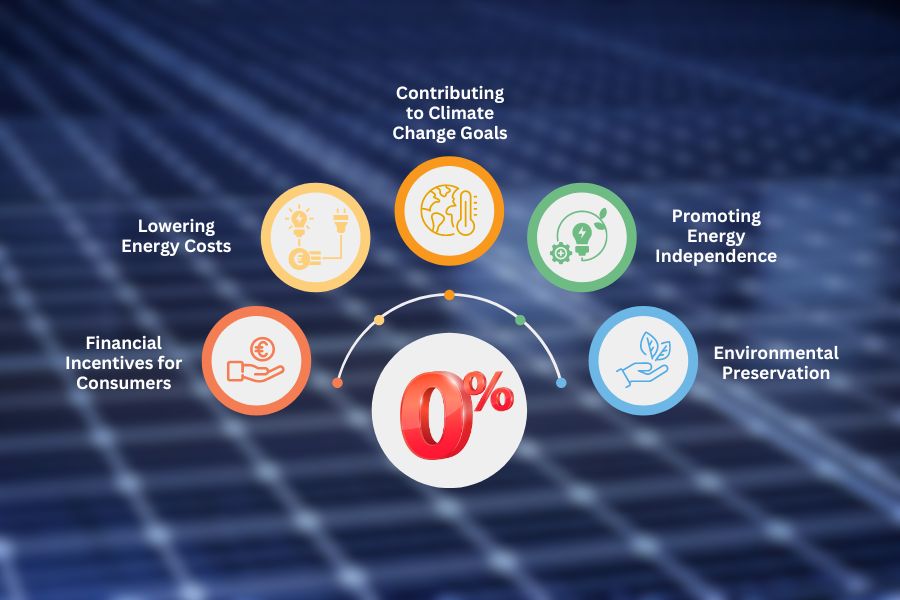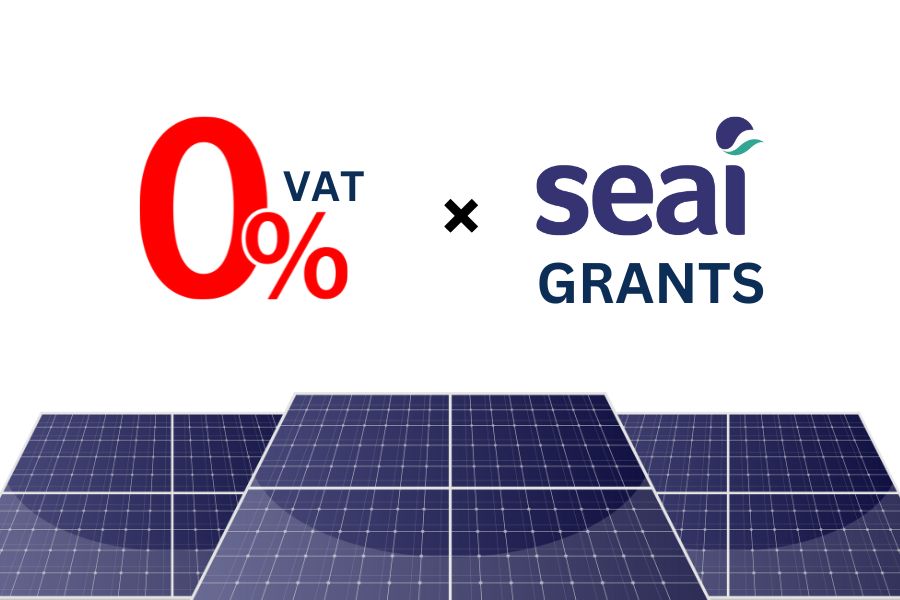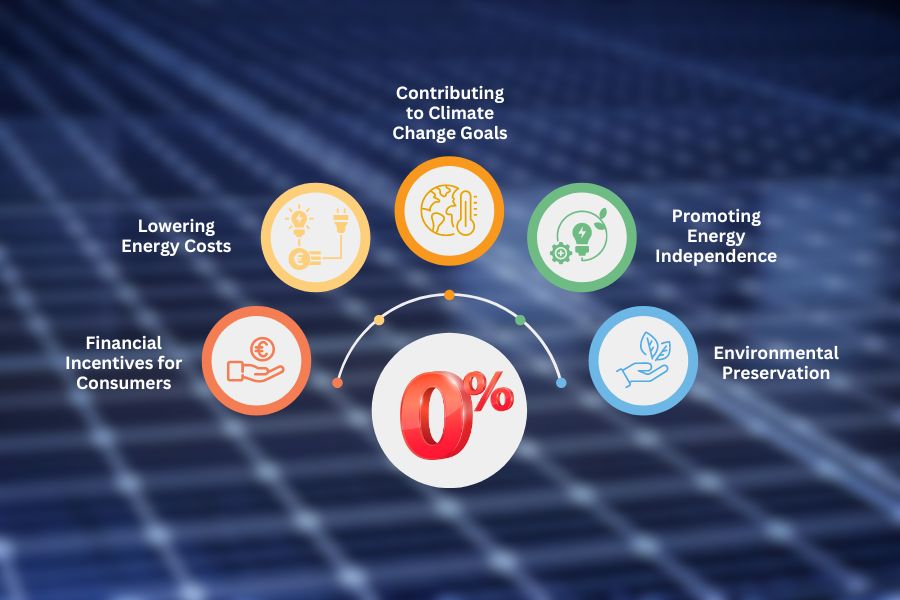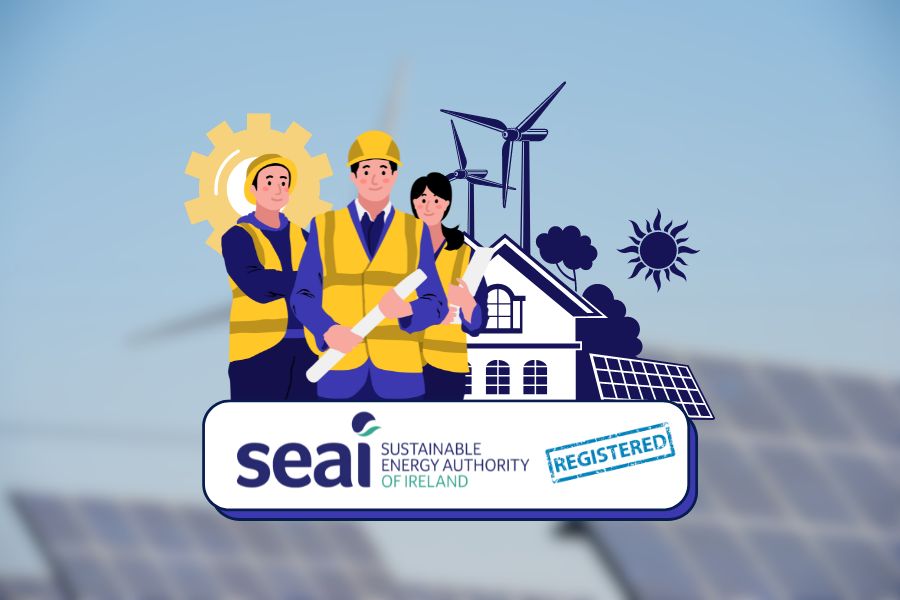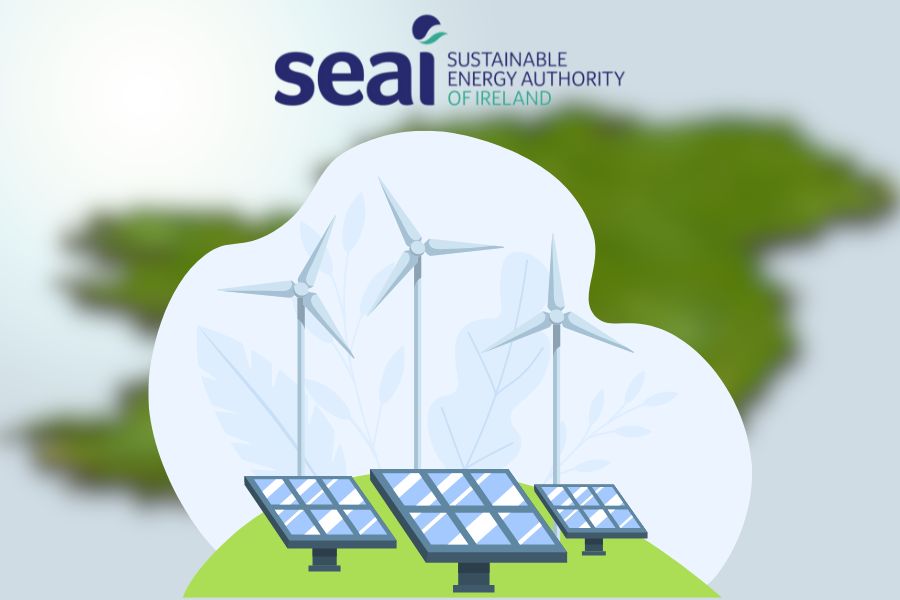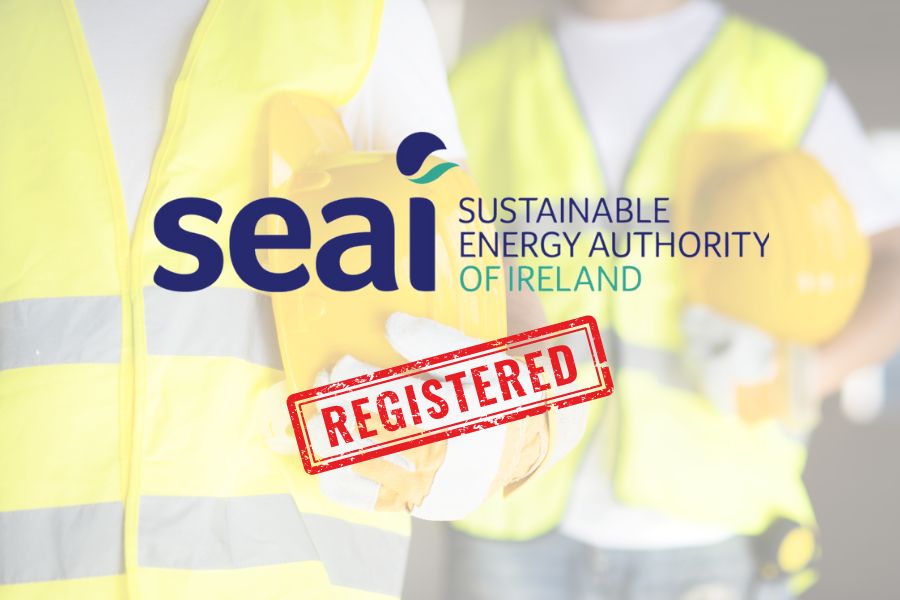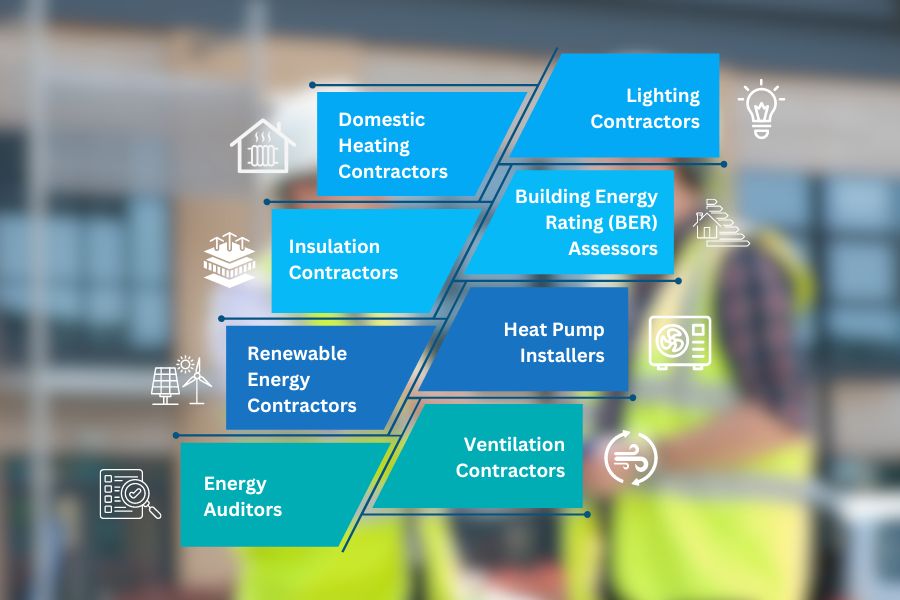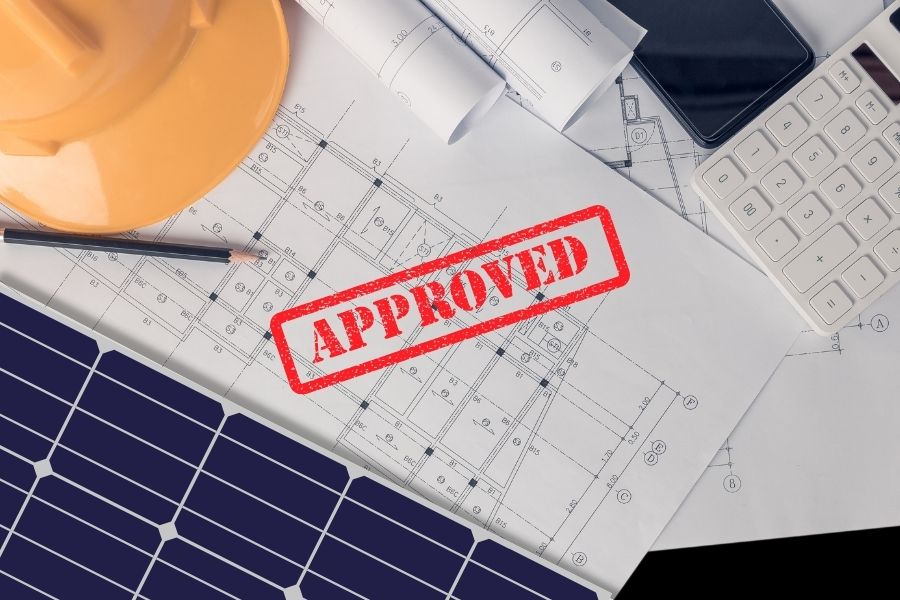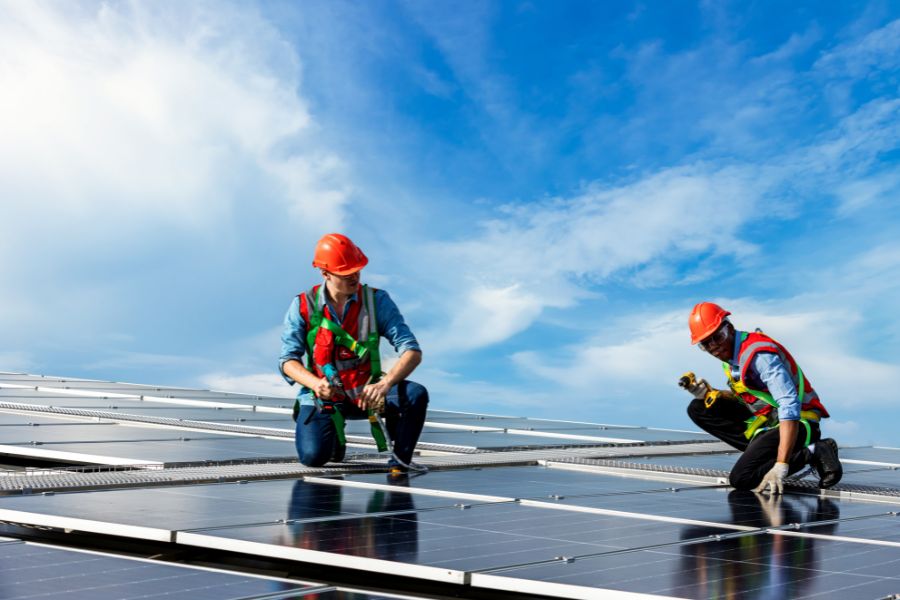In Ireland, off-grid solar systems are legal, but homeowners must adhere to specific regulations and standards. While complete energy independence is enticing, Irish residents should ensure their off-grid setups comply with local laws that promote safety and grid stability.
Navigating the legal landscape can be intricate, but with thorough research and understanding, homeowners can harness the sun’s power without running afoul of the law.
This article sheds light on the complexities and offers guidance on staying compliant while enjoying the benefits of off-grid solar in Ireland.
The Basics of Solar Energy in Ireland
Solar energy, a cornerstone of renewable energy systems, captures the sun’s power to generate electricity. Besides, one predominantly achieves this using photovoltaic panels or solar thermal mechanisms.
Ireland might often be associated with its cloudy skies, but one should not underestimate the solar power potential. Despite the varying weather, Ireland receives adequate solar radiation, particularly during summer, making it viable to install solar panels.
Types of Solar Systems in Ireland
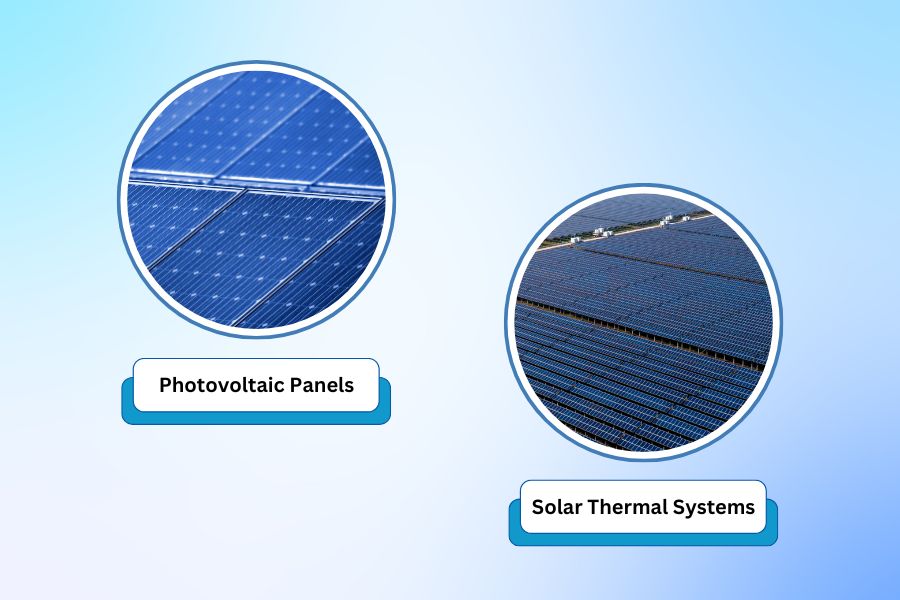
- Photovoltaic Panels: These are the most common solar installations in Ireland. They convert sunlight directly into electricity. The efficiency of photovoltaic panels has improved significantly, making them a practical choice even in places with variable sunlight.
- Solar Thermal Systems: These capture solar energy to heat water directly. In Ireland, they’re commonly used to provide hot water for homes.
Benefits
- Sustainability: One of the primary merits of installing solar panels is its contribution to renewable energy. It reduces fossil fuel dependence and consequent carbon emissions.
- Cost Savings: The operational costs are minimal after the initial investment in installing these renewable energy systems. As electricity prices surge worldwide, harnessing solar power promises significant long-term savings.
- Grants and Supports: SEAI (Sustainable Energy Authority of Ireland) often offers grants for Irish homeowners wanting to install solar panels. It makes this form of renewable energy more attainable.
Challenges
- Intermittent Sunlight: Ireland’s many overcast days mean solar power generation can be inconsistent. Besides, this unpredictability underscores the importance of integrating energy storage options like batteries when installing solar panels.
- Initial Investment: Although there’s a notable upfront cost for renewable energy systems like solar installations, the long-term energy savings and available grants often balance it out.
What Are Off-Grid Systems
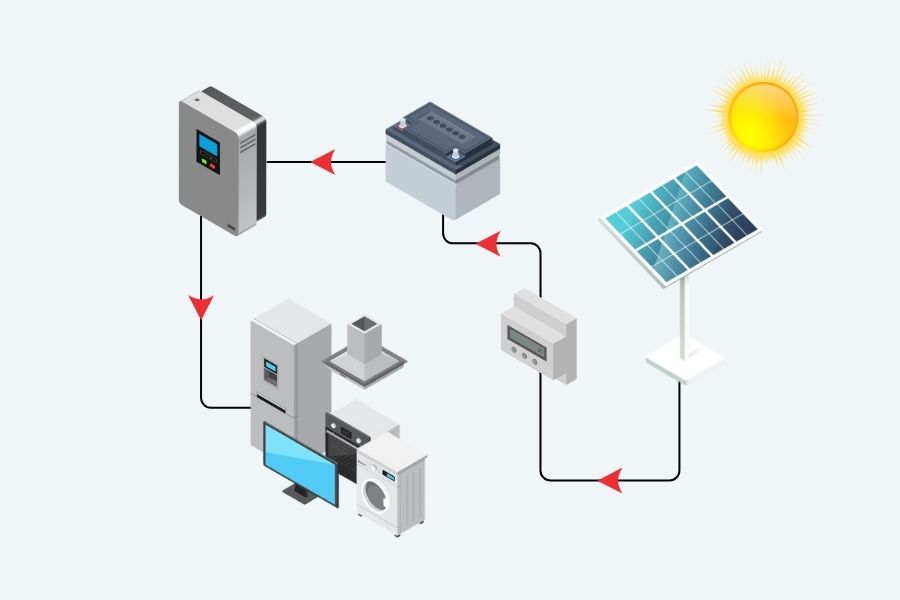
Off-grid systems are energy setups that function independently from the centralized utility grid. Imagine a remote cabin in the woods or a rural home far from the nearest power lines. Connecting to the main grid might be challenging or cost-prohibitive in these scenarios. That’s where off-grid systems come into play.
Typically, off-grid means electricity generation systems, with solar panels being the most popular. These solar panels capture sunlight and convert it into electricity. But it’s not just about generating electricity; you also store it for later use at night or on cloudy days. Besides, this is where batteries come into the picture. Such batteries are like the ones you might find in electric vehicles but on a larger scale.
Wind turbines can also be part of an off-grid system, especially where wind is a consistent and strong resource. For some people, a hybrid setup with solar panels and wind turbines works best. Again, it can harness energy from both the sun and the wind.
There’s also a need for equipment that ensures the electricity generated is safe and usable for household appliances. Devices like inverters come into play here, converting the direct current produced by solar panels into the alternating current that most home devices use.
Beyond electricity, off-grid living can extend to other utilities. Think about water and sewage, for instance. Someone living off-grid might rely on well-water or rainwater harvesting. They might have to use composting toilets or septic systems instead of being connected to municipal water and sewage lines.
In essence, an off-grid system is all about self-sufficiency. It allows people to live and thrive in places where traditional utilities might not reach. Furthermore, it offers them the necessary resources to power their homes and lives without relying on external infrastructure.
What are Ireland’s Laws on Off-Grid Solar?
Planning Permission
Homeowners usually need planning permission for larger solar panel installation or if the solar panels significantly alter the appearance or structure of a dwelling. However, smaller installations, particularly on rooftop solar panels, often fall under ‘exempted development.’ It means they do not need planning permission. It’s always a good idea to consult with local planning authorities before any installation.
Grid Connection
There are specific requirements and processes to follow with the grid operators if a homeowner wishes to connect their solar panel system to the grid (for selling excess power back, for instance). Off-grid systems, by definition, don’t connect to the grid and hence wouldn’t need to follow these rules.
Micro-generation Support Scheme (MSS)
The Irish government has been considering schemes where households and businesses can generate electricity and sell the excess back to the grid. While this isn’t strictly about “off-grid” systems, it’s relevant for those considering solar installations and weighing the benefits of staying off-grid versus connecting to the grid.
Grants and Financial Incentives
The Sustainable Energy Authority of Ireland (SEAI) offers grants for solar PV installations and battery storage. Again, this can make solar power more accessible and affordable for homeowners. However, specific conditions apply, and homeowners should consult SEAI’s official guidance.
Safety and Standards
All electrical installations must meet specific safety standards, including solar power setups. Installers should be registered and qualified to ensure installations are safe and adhere to the codes.
Tax Implications
Some supports or grants might have tax implications. It’s crucial to be aware of these when considering your solar power system and installations.
Do You Need Special Permissions for Off-Grid Solar?
In Ireland, you generally don’t need planning permission to install solar panels for most homes, farms, and industrial buildings. However, there are specific situations where permissions are necessary if:
- The building is a protected structure.
- Solar panels will protrude more than 9 inches from the roof’s surface.
- Solar panels will be visible from the road.
These rules are stipulated in S.I. 493 of 2022. So, while off-grid solar systems largely avoid the need for special permissions, it’s essential to be aware of these exceptions to ensure you comply with local regulations.
How Do Utility Companies View Off-Grid Solar?
Utility companies have mixed feelings about off-grid solar. When customers think about installing solar panels and setting up their solar power system, less energy is generated through traditional means, impacting revenues.
Some utilities are concerned about maintaining their infrastructure, especially in areas designated as a solar safeguarding zone. On the other hand, in regions where planning permission is given for solar installations on industrial buildings or homes, some see it as an opportunity to establish new business models.
Especially in places with solar safeguarding zones, utilities might view off-grid systems as reliable backups. While some might be hesitant, others see the benefits and potential of the solar wave.
Is it Better to Stay On-Grid or Go Off-Grid?
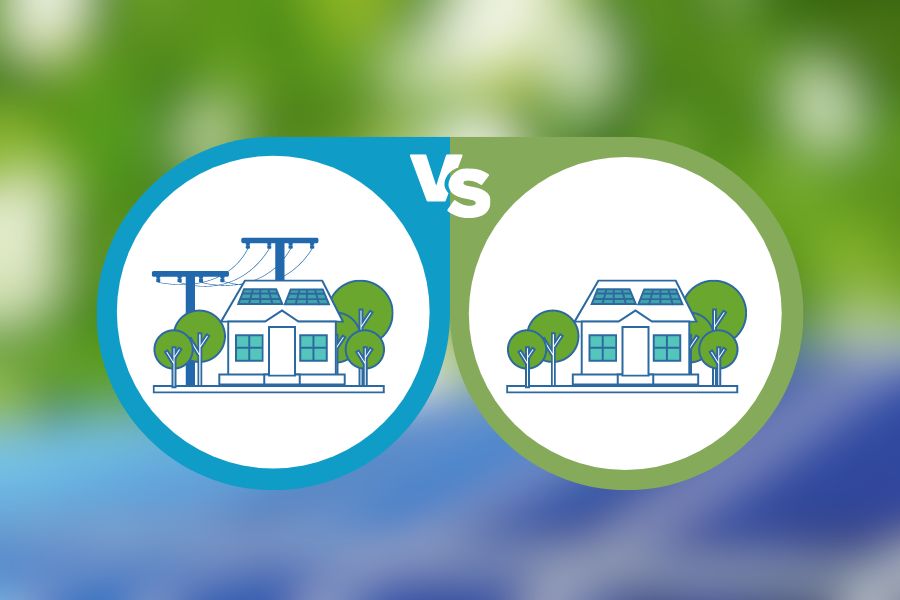
Whether to stay on-grid or go off-grid is a decision that depends on various factors. Both options have their advantages and drawbacks. Here’s a quick breakdown:
On-Grid Advantages
- Reliability: Grids usually provide consistent power. If your solar system does not produce enough energy, the grid becomes a backup (e.g., during cloudy days).
- Net Metering: Some places allow you to sell excess power back to the grid, which can offset costs.
- Lower Initial Cost: There is no need for extensive battery storage systems, making initial setup more affordable.
On-Grid Disadvantages
- Dependence: You still depend on the utility company and their rates.
- Outages: If the grid goes down, so does your power unless you have a backup battery system.
Off-Grid Advantages
- Independence: Complete autonomy from utility companies and their rates.
- No Grid Connection Costs: Avoid fees associated with grid connections or services.
- Ideal for Remote Locations: Off-grid is the go-to choice for places where to connect to the grid is expensive or impractical.
Off-Grid Disadvantages
- Higher Initial Costs: Requires a comprehensive system, including a robust battery storage solution.
- Maintenance: Responsibility for system upkeep lies entirely with the homeowner.
- Energy Production Concerns: You must ensure your system produces and stores enough energy for all your needs.
Considerations
- Location: Going off-grid might be more feasible if in a remote area.
- Investment: Are you ready for the initial cost of an off-grid system?
- Energy Needs: Analyze your energy consumption. Off-grid requires careful planning to avoid power shortfalls.
- Environmental Concerns: If reducing your carbon footprint is paramount, solar systems can help, whether on or off-grid.
The decision largely depends on individual circumstances, preferences, and values. Some prioritize independence and sustainability, choosing off-grid. Others might appreciate the grid’s stability and backup, especially in urban areas. It’s essential to assess your situation, consult professionals, and make an informed decision.
What Does the Future Hold for Off-Grid Solar in Ireland?
The future of off-grid solar in Ireland appears bright. As Ireland intensifies its focus on renewable energy, off-grid solutions present an opportunity, particularly in remote or architectural conservation areas where grid connections might be challenging.
Even with Ireland’s unpredictable weather, advancements in solar technology ensure better efficiency. The solar electricity grant provided by the government further incentivizes homeowners to adopt solar. The increasing emphasis on sustainability and the drive to reduce carbon emissions further fuel the interest in solar solutions.
As the nation’s energy demands evolve, off-grid solar, supported by grants and conservation considerations, will likely become a cornerstone in Ireland’s energy transition.
Conclusions
Navigating the landscape of off-grid solar legality in Ireland is crucial for those considering this renewable energy path. Ireland’s commitment to sustainability and eco-friendly solutions generally supports integrating solar systems.
It’s vital to underscore the importance of the Planning and Development Act. Ireland’s commitment to sustainability and eco-friendly solutions is evident. In addition, while the nation generally supports solar integrations, there are distinct guidelines to follow, especially within the purview of this act.
For many, the allure of reducing their electricity bill through solar is compelling. Yet, before you envision a future free from soaring electricity bills, thorough consultation with local authorities is paramount.
Before installing a solar array, we recommend you consult with local authorities and be fully informed. As the green energy momentum continues, it’s hopeful that Ireland will further streamline processes. It makes the transition to off-grid solar accessible and straightforward for its residents.
